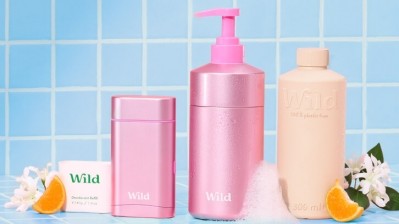Sustainable palm oil: BASF exec discusses RSPO membership, improved supply chain traceability and more

A controversial ingredient in cosmetic and personal beauty care product formulation, manufacturers and suppliers to these industries have used palm oil for years for its moisturizing and texturizing properties. Historically, this ingredient is considered controversial due to its sourcing and harvesting practices, which can be potentially damaging to the surrounding environment.
Recently, companies like BASF have been working on alternative methods to harvest, process, and formulate products using sustainable palm oil instead of the more traditional alternatives.
To learn more about the company’s efforts to utilize more sustainable palm oil in its production and supply chain, including its participation in the Round Table for Sustainable Palm Oil (RSPO), the company’s palm oil footprint, and ways BASF is working to address deforestation and traceability of palm oil in its ingredient supply chain, CosmeticsDesign interviewed Prerna Chatterjee, Senior Sustainability Manager for her insights.
CDU: What is palm oil, and how is it used to formulate cosmetic and personal beauty care products?
PC: BASF is one of the leading global suppliers for personal care, home care, industrial and Institutional cleaning, and technical applications as well as for food performance and health ingredients. A significant share (one third) of our products is based on renewable raw materials, of which a substantial part is oil palm based.
In the personal care industry, often it is the oil from the kernel (palm kernel oil & its derivatives) that is used. It is used as a functional ingredient & emulsifier to help blend oil & water-based ingredients together.
Oil palm derivatives are glycerol, fatty acids or fatty alcohols, ingredients used in products for their emollient or foaming properties.
CDU: What are the current standards for palm oil to be considered environmentally sustainable?
Environmentally friendly palm oil production involves practices that minimize negative impacts on the environment, including avoiding deforestation, minimizing greenhouse gas emissions, and reducing the use of harmful pesticides and fertilizers. It also involves protecting the rights of local communities & ensuring fair labor practices.
There are a couple of standards/ certifications that are present, RSPO (Round Table on Sustainable Palm Oil) being the most widely recognized certification for sustainable palm. It is based on a set of environmental & social criteria that companies must meet to be certified.
BASF joined the RSPO in November 2004, very soon after the start. Since then, the RSPO has had a remarkable journey towards the sustainable certified production of palm and palm kernel oil, especially after the review of the Principles and Criteria in 2018.
Therefore, we consider RSPO to be a standardized implementation of a strong No Deforestation, No Peat, No Exploitation (NDPE) policy.
CDU: What are some ways that BASF is working to increase the availability of sustainable palm oil to cosmetic or personal beauty care product manufacturers?
PC: We support progress in the palm sector by moving the supply chain towards certified products. In this way, we take part in global palm initiatives and in networks with various stakeholders to drive change for oleo derivatives.
Moreover, we are expanding our offering of certified sustainable products in accordance with the RSPO’s Mass Balance supply chain model. In 2018, BASF made the commitment & implemented a full portfolio switch to offer palm-based specialties for the personal care industry exclusively as certified sustainable.
This helped our customers to meet their obligations to customers, consumers, and stakeholders. This is an important milestone for the personal care industry.
Smallholder engagement as integral part of sustainable palm production: partnerships in terms of smallholder projects enable BASF to support these farmers and at the same time increase the availability of sustainably produced palm oil, e.g. by offering continuous education and technical support on implementing and maintaining sustainable palm oil practices and to foster a sustainable palm oil production supply chain that is free from deforestation and competitive in the global market, while increasing the social and economic benefits for farmers.
CDU: What is BASF’s palm oil footprint?
PC: BASF purchased 242,946 metric tons of palm oil and palm kernel oil in 2022. We again met our own voluntary commitment to source only RSPO-certified palm oil and palm kernel oil.
This avoided more than 330,000 metric tons of CO2 emissions compared with the procurement of conventional palm oil and palm kernel oil. By 2025, we aim to extend our voluntary commitment to sustainable procurement to the main intermediate products based on palm oil and palm kernel oil.
We were able to trace 97% of our global palm footprint to oil mill level as of the end of 2022. In addition, we continued to drive forward the RSPO supply chain certification of our sites for cosmetic ingredients. At the end of 2022, 25 production sites worldwide were certified by the RSPO.
CDU: What are some of the greatest challenges facing cosmetics and personal beauty care companies looking to formulate products with sustainable palm kernel oil?
PC: The palm oil supply chain is complex, involving challenges & concerns linked to environmental protection, human rights, deforestation & economics in developing countries. In addition, the availability of certified sustainable palm kernel oil derivatives is still limited.
We at BASF therefore support market transformation via certification & engage proactively in all areas of concern. To progress holistically, however, the collaboration of all partners in the value chain is needed.
CDU: What is BASF doing actively to address deforestation?
PC: BASF recognizes the importance of protecting the world’s forests for the well-being of the environment and society. We focus on our raw materials supply chains, our own operations, as well as our products in the combat against further deforestation.
Our approach encompasses primary forests and areas of High Conversation Value (HCV), as well as High Carbon Stock (HCS) forests and peatlands. Like many derivative manufactures, BASF sources from hundreds of palm mills (~1300) scattered along the equator.
These mills source from thousands of plantations, ranging from large industrial concessions to smallholder farms. Interspersed between the plantations lie blocks of remaining rainforest, some of which is home to indigenous peoples and habitat for critically endangered species such Sumatran tigers and orangutans.
The general challenge for the industry and for BASF is to monitor upstream suppliers and ensure that these remaining forests are not being cleared for oil new oil palm plantations – which would be a clear breach with BASF NDPE policy. Since 2021, BASF has signed up for the Palmoil.io web platform to track deforestation from plantations and link it to its suppliers.
Palmoil.io brings together the critical ingredients for effective forest monitoring - forest alerts, high resolution satellite scenes, supplier relationships, grievance information along with an estimated traceability to plantation approach.
CDU: How is BASF engaged in improving traceability in the palm oil supply chain?
At BASF we believe that public transparency is key in our industry journey towards sustainable palm. We work with key stakeholders and stakeholder forums to define traceability in a way that supports reduction of unsustainable palm oil and thus helps to stop deforestation. We publicly disclose our tier 1 suppliers and our mill list. We were able to trace 97% of our global palm footprint to oil mill level as of the end of 2022.
We also launched a successful pilot proof-of-concept blockchain platform to ensure end-to-end traceability from farmers to the consumers. The platform brings the potential to put greater traceability and ingredient transparency directly into the hands of the end consumer using fully digitized and secure crypto blockchain technology.










![Chinese study highlights mental health challenges in atopic dermatitis, emphasising holistic patient care. [Getty Images]](https://www.cosmeticsdesign-europe.com/var/wrbm_gb_food_pharma/storage/images/_aliases/wrbm_tiny/publications/cosmetics/cosmeticsdesign-asia.com/headlines/formulation-science/chinese-research-linking-atopic-dermatitis-to-mental-health-underscores-need-for-holistic-care/17040623-1-eng-GB/Chinese-research-linking-atopic-dermatitis-to-mental-health-underscores-need-for-holistic-care.jpg)








